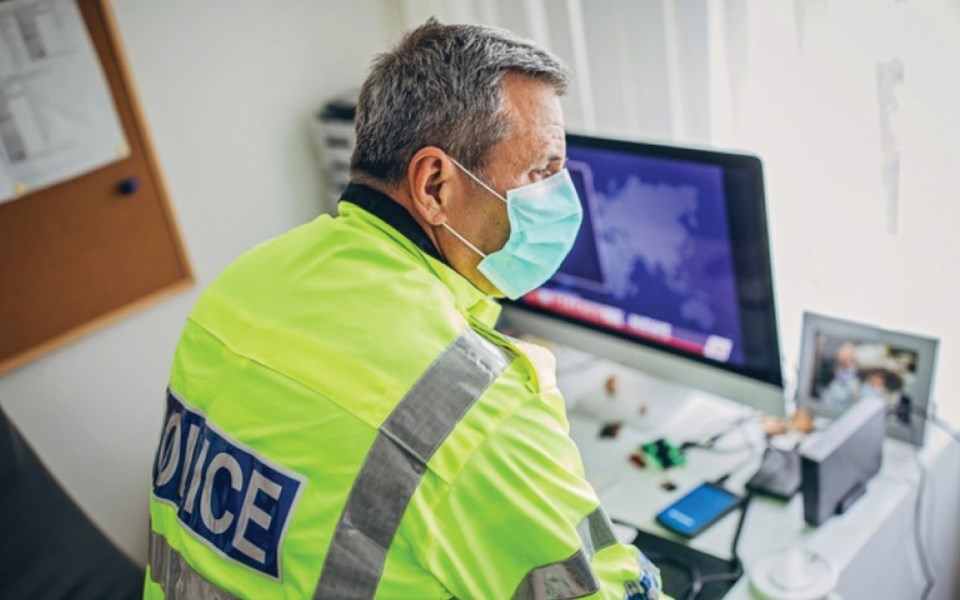The B.C. Civil Liberties Association is warning both the public and the authorities to ensure compliance officers and police don't overstep their legal bounds after a ministerial order expanded such officers' duties.
"It is important that people are actively aware and informed about their rights during the pandemic, and that police officers and compliance officers absolutely not over-reach their authorized powers in B.C.," association executive director Harsha Walia said.
With B.C. now in the third week of a public emergency, Minister of Attorney General and Public Safety Mike Farnworth issued an order March 31 giving health officers and inspectors governed by the Cannabis Control and Licencing Act, Liquor Control and Licencing Act and the Gaming Control Act new powers.
Those officers can now:
• monitor closed or restricted facilities and areas;
• give warnings, information and advice to persons in respect of public health orders, including warnings to persons who may be acting in contravention of a public health order; and
• provide health officers with information about potential contraventions of a public health order.
Those provincial compliance officers cannot:
• detain an individual as a result of a contravention or suspected contravention of a public health order; or
• issue an order, fine or penalty, including an administrative penalty, under the Public Health Act.
The City of Vancouver soon followed April 7 with a description of its work, including closures of bars, pubs, restaurants, salons, barbershops, spas and many other restrictions.
"The city has deployed staff from a number of departments to help ensure compliance with these orders," a news release said in the wake of the March 19 declaration of a municipal state of emergency.
The city has done thousands of inspections and issued more than 1,400 physical distance warnings.
Walia said there's a fine line not to be crossed as to what kind of officer has what sort of power and authority. She said police officers, compliance officers and enforcement officers in B.C. are explicitly not empowered to enforce public health orders in BC.
"This means they absolutely do not have the legal authority and should not be ticketing or detaining people, including collecting identifying information, from people who may be in violation of public health orders," Walia said.
"The provincial guidelines make clear that their scope is to ensure voluntary compliance without enforcement interventions."
The Canadian Civil Liberties Association (CCLA) said in an April 7 news release that new rules people find themselves under need to be strictly necessary, proportionate and rational. "They need to be clearly and consistently explained to the population," the release said. "Then re-explained. Leaders need to be clear, firm, patient and understanding – even in the face of an evolving pandemic. Restrictions on liberty need to be grounded in law. And any punitive enforcement measures need to be exercised with restraint, reserved as an absolute last resort."
This caution, say both associations, extends to carding or random checks of people.
It's been an issue in B.C. and has arisen recently in Ontario in the pandemic.
The CCLA said April 3 that Ontario March 31 issued an emergency order in council allowing police officers and bylaw enforcement officers to demand names, addresses and dates of birth if they have reasonable and probable grounds to believe a person has violated one of the many new emergency orders.
"In addition, the order states, if the demand has been made, you must comply; while the many protections against carding that communities and activists (and CCLA) have been fighting for years are nowhere in sight," the CCLA said
"While we certainly understand the enormity of the pandemic, and of the province's task in trying to contain it, allowing police and bylaw officers this kind of power, with no further constraints, no accountability, and no privacy protections, could lead to a mass police database of proportions this province has not seen before."
@jhainswo




